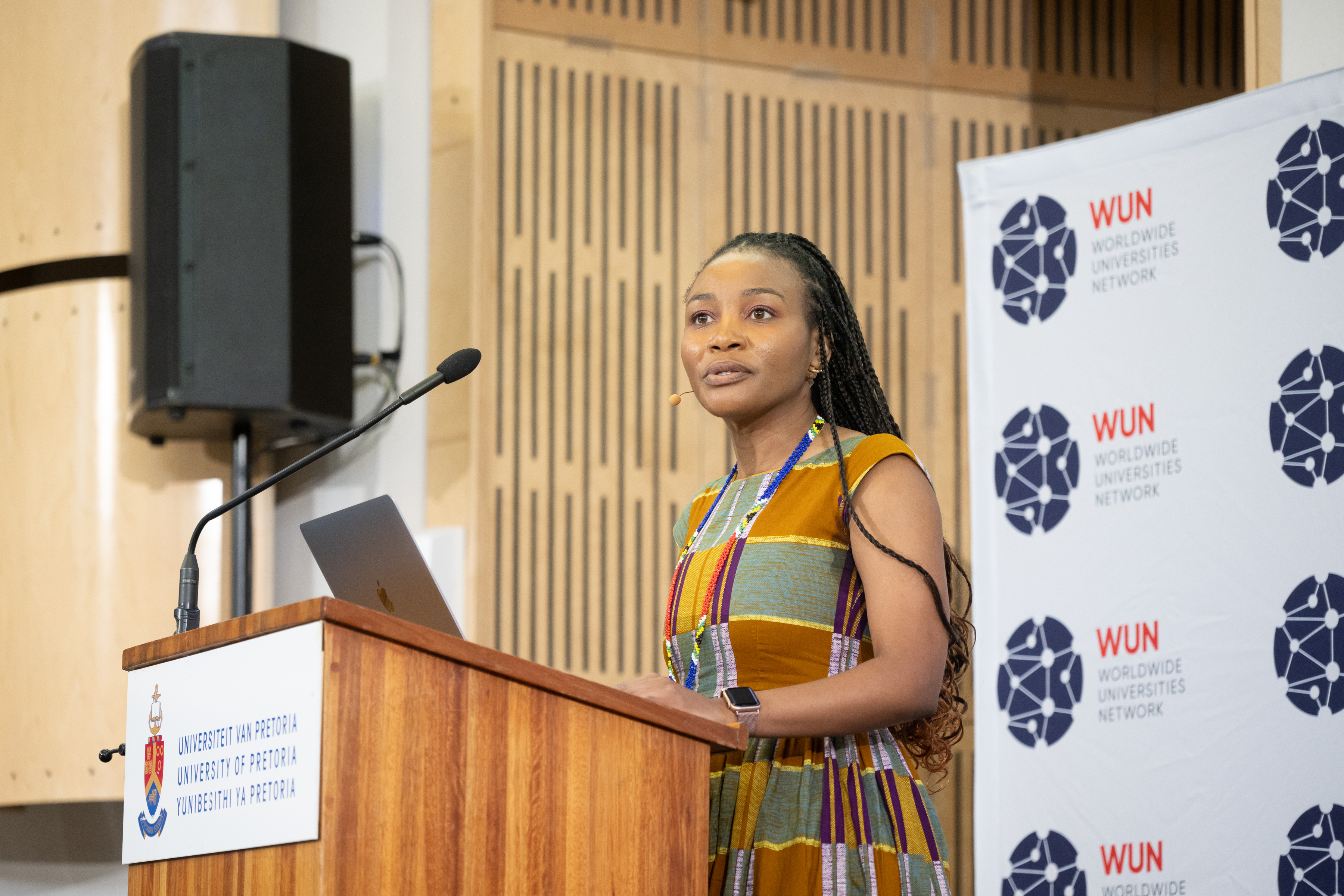
Dr Alecia Ndlovu is Principal Investigator for a WUN project awarded in 2021 that[1] researches the roles politics and institutions play in ensuring revenues from mining support development in Africa. The project employed a mixed-method approach, integrating cross-country statistical analysis with fieldwork in two resource-rich democracies, Ghana and South Africa.
The project team, consisting of four WUN members[2], identified the institutional mechanisms that matter most for resource-based development on the African continent and developed a more accurate and context-specific explanation of the role of institutional mechanisms in resource management. The overall objective was to highlight the political and institutional challenges resource-rich African countries face in realising their development objectives and provide recommendations for a way forward. A video summary of the project is available.
Alecia completed her PhD in 2023, two years after starting the WUN project. As an Early Career Researcher (ECR) leading a WUN team, she reflected on the insights gained from her experience of heading up her first international research project. “I’ve learned that research is not only about external impact; it also transforms us as researchers and who we become during the process of research”.
As a first step to securing RDF funding, she assembled the team[3] around a research gap she identified during her PhD: there has been little investigation into whether and how political and institutional mechanisms hold leaders accountable for how they use resource revenues. She sought partners with an interest in the research, and who were open to her being the principal investigator despite her relative inexperience in leading an international team.
“I told them I was unknown in the field, didn’t have my PhD and hadn’t developed a publication record, but showed them my passion for the work and its importance. Because I was honest about my inexperience as a PI and that I needed help, a couple of professors stepped up to play a mentorship role.”
Working with senior colleagues facilitated mentorship but was also intimidating and required careful relationship management. Alecia suggests that focusing on regular achievable project goals enabled her to navigate the unique power dynamics within the team. Not only did she need to give direction to more senior researchers, but she also found herself mediating disagreements between them.
“A lot of emotional intelligence and diplomacy goes on in the background to ensure everyone is heard and understood. I ensured meeting agendas included time for information sharing as well as decision making and developed strong in-person connections to support me in managing more senior colleagues and group disagreements”.
Alecia noted that a particularly unexpected insight was how important it was to adapt to the evolution of the project. She was initially resistant to deviating from the original proposal: “I felt the need to control the process and held on too tightly to the original design. Flexibility requires confidence, and this comes with experience”. When it became impossible to secure a field researcher in Ghana, Alecia and her team pivoted and instead hosted a seminar at the University of Ghana for some research participants she had hoped to interview. In this way, she was able to access the data and connections outside of an interview experience when the team no longer had that expertise.
On 23 October 2024, Alecia participated in the WUN ECR training webinar ‘Leading your first international collaboration: Managing people and projects’. Moderated by Dr Taryn Bell (University of Leeds), Alecia was joined by fellow WUN ECRs Calvin King Lam Chung (The Chinese University of Hong Kong), and Natalie Cutler (University of Technology Sydney), as a panel they shared their experience of leading their first international research projects. The recorded webinar is available here.
Now a Senior Lecturer in political studies at the University of Cape Town (UCT), Alecia hopes to help other ECRs gain skills and confidence in establishing academic careers. The WUN research project is continuing its investigation into political accountability in natural resource management, covering macro-level processes such as the influence of party systems and electoral competition in African democracies. Under Alecia’s leadership, the project’s next phase will study the role of parliament and political parties more specifically as key institutions in resource governance.
What next?
- Sign up to the WUN newsletter to get the latest stories about our members’ research, three times per year
Watch Alecia’s presentations about her project (links to this YouTube talk from 1 May 2024 and to Alecia’s talk at the 2024 AGM)
[1] Mining Accountability and Development in Africa
[2]Research team: University of Cape Town; University of Ghana; The Chinese University of Hong Kong; University of Bergen; Fridtjof Nansens Institutt; University of the Witwatersrand.